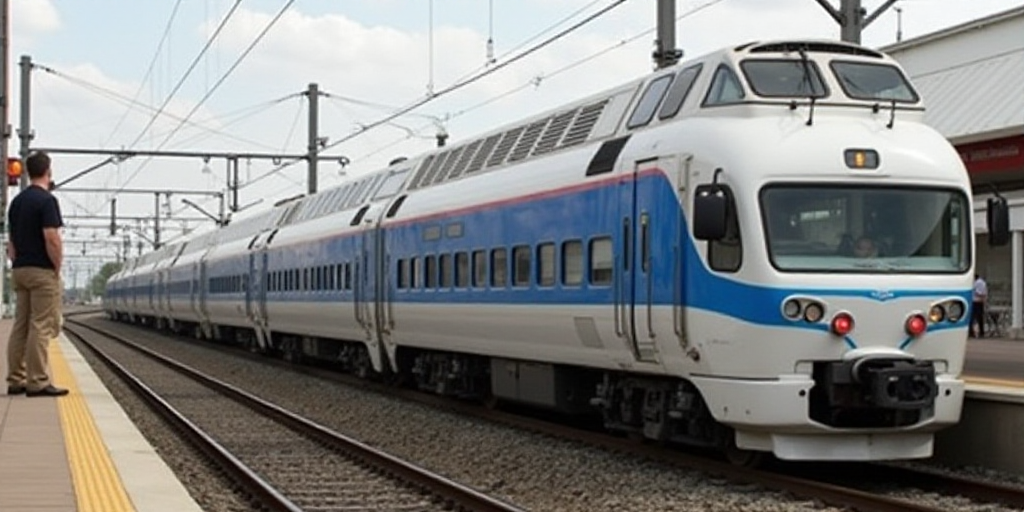Introduction of New Agency and Direct Allocations for Railway Development
The Mexican federal government is working to harmonize various laws related to passenger and freight railway services to gain full control over the sector. This initiative aims to support the development of ongoing passenger railway projects, including the establishment of the Agency of Railways and Integrated Public Transport (ATTRAPI) to replace the Railway Regulatory Agency (ARTF). Additionally, the government seeks to establish legal foundations for using direct allocation mechanisms.
Background and Relevance
Claudia Sheinbaum, the President of Mexico City, has proposed these changes as part of a broader strategy to strengthen public transportation infrastructure. The new railway projects (México-Querétaro, México-Pachuca, and México-Veracruz) are expected to connect over 49 million people, fostering economic growth and social well-being.
Legislative Reforms
The government has proposed reforms to the Regulatory Rules of the Railway Service, the Federal Public Administration Organic Law, the Federal Highways, Bridges and Road Transport Law, the General Communication Roads Law, and the National Goods Law. These reforms aim to solidify legal frameworks that support railway development over the past two years.
- Implementation of a Decree (20 November 2023) declaring the public service railway transportation for passengers in the Mexican Railway System as a national priority area.
- Direct allocations to federal public entities for public service provision, use, exploitation of goods, and more, driven by utility, public interest, general interest, social interest, or national security.
- These allocations will have indefinite validity and cannot be transferred to private entities, ensuring they remain under federal public administration control.
ATTRAPI and its Role
The creation of ATTRAPI will consolidate a specialized structure capable of efficiently coordinating historical railway projects driven by the current administration. Furthermore, it will provide technical and strategic support to states and municipalities in developing railway projects.
Key Questions and Answers
- What is the main goal of these legislative reforms? The primary objective is to harmonize laws related to railway services, ensuring full control over the sector and facilitating the development of ongoing passenger rail projects.
- Who proposed these changes, and why are they relevant? Claudia Sheinbaum, the President of Mexico City, proposed these changes as part of a strategy to strengthen public transportation infrastructure. The new railway projects aim to connect over 49 million people, fostering economic growth and social well-being.
- What is the purpose of the ATTRAPI? The ATTRAPI will consolidate a specialized structure to efficiently coordinate railway projects and provide technical and strategic support to states and municipalities in developing railway projects.
- What are the key aspects of direct allocations mentioned in the reforms? Direct allocations will be granted to federal public entities for public service provision, use, exploitation of goods, and more. These allocations will have indefinite validity and cannot be transferred to private entities, ensuring they remain under federal public administration control.






